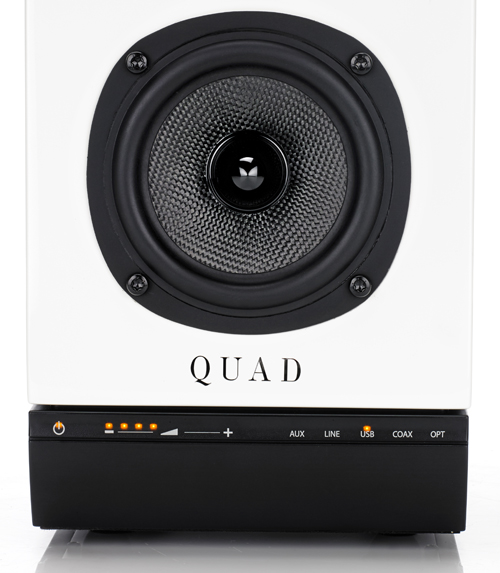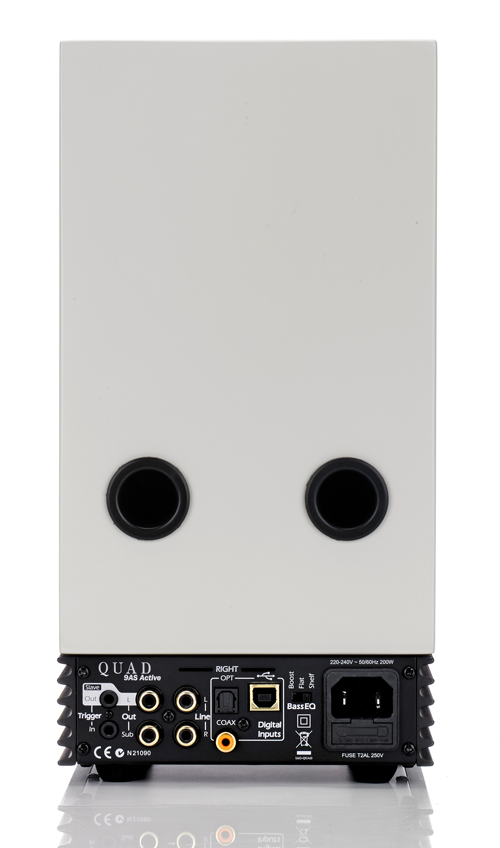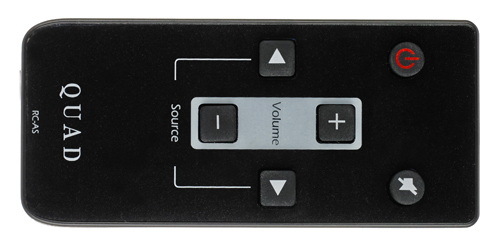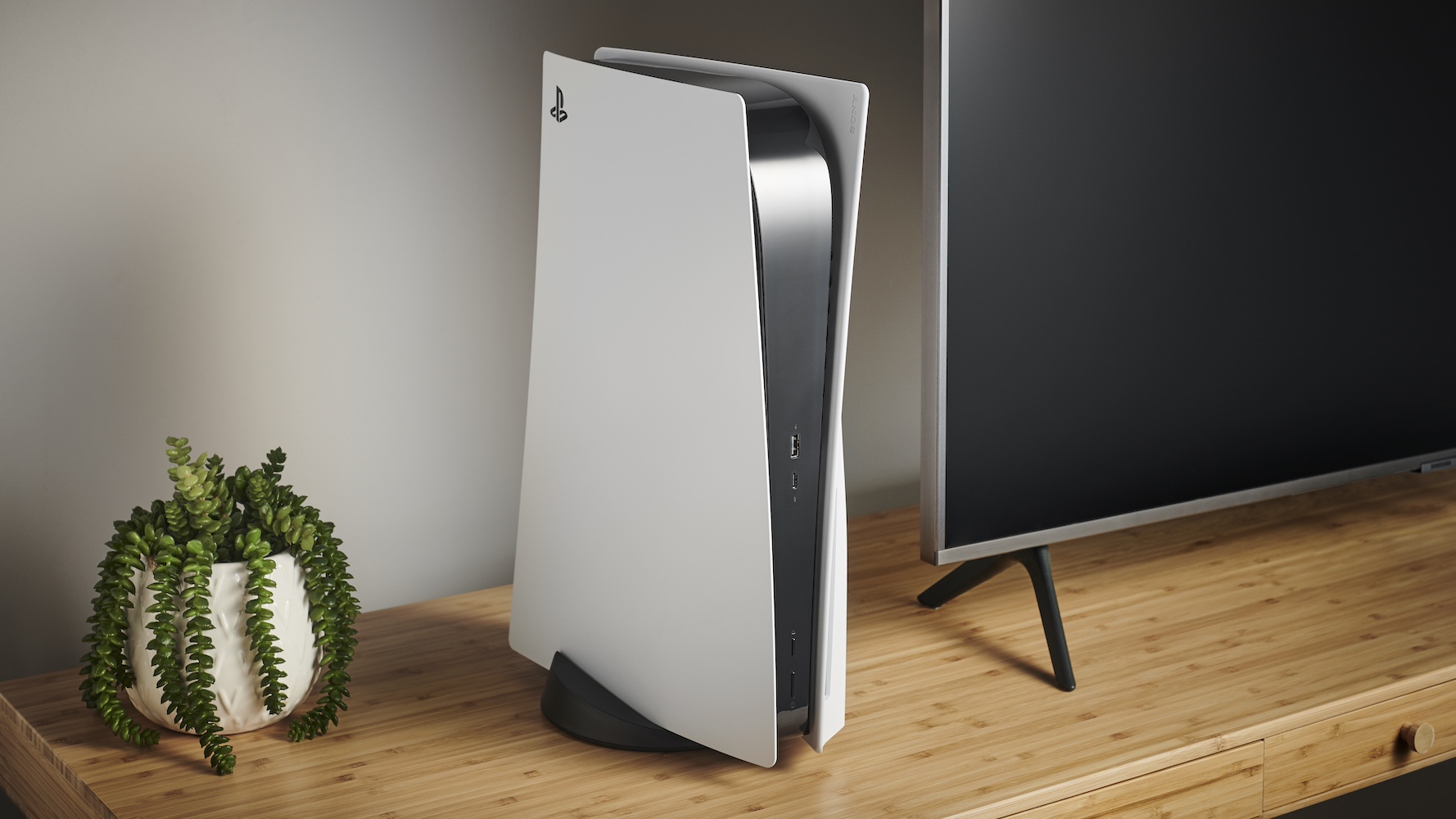What Hi-Fi? Verdict
Decent speakers but they need more punch and verve
Pros
- +
Clean and spacious sound
- +
Premium-feeling finish and build
- +
Versatile connections
Cons
- -
Could be a more entertaining listen
- -
Remote doesn’t work at an angle
- -
No Bluetooth
Why you can trust What Hi-Fi?
Active speakers with a high-resolution DAC and versatile digital connections? The Quad 9AS speakers certainly piqued our interest.
Based on the mini-monitor design of the (now discontinued) 9L active speakers, the new Quad 9ASes house 100W of amplification and a DAC capable of playing audio files of up to 24-bit/192kHz.
The active design means each speaker houses class AB amplifiers to power the drivers, hence the need for heat sinks at their base.
Performance

We start with the Game of Thrones soundtrack playing on our MacBook Pro (USB connection) and the Quad 9ASes soars with a clean and articulate sound.
The King’s Arrival is clear and playful, with each instrument easy to pick out in the huge and open soundfield. It’s a big-scale sound, and can go loud without distortion.
There’s space at the top end for the treble to sparkle and flourish, although it can sound hard-edged if pushed.
While the 9ASes don’t have too much low extension, the balance suits a desktop system nicely – they don’t boom when a bassline kicks in. We’d avoid placing them too close to the wall, though, to keep that airy sound.
But for all the pristine-sounding talents, there’s something lacking with the Quads. Voices are focused and expressive, but not enough to hold our attention.
Switching to Daft Punk (24-bit/176.4kHz from our reference streamer via the Quad’s coax input) highlights the 9ASes’ lack of agility and rhythm. The beats of Get Lucky are a touch flat, and the track’s sense of fun is diluted.
We play our desktop favourites, the Ruark MR1s in comparison and, while the petite speakers may not have the same insight as the Quads, they certainly are more fun to listen to (at half the price too).
Design

The 9ASes have a smart finish, with an uncluttered fascia, so we keep the grilles off.
The build is sturdy and compact, and feels premium. The relatively compact size of the 9ASes – they’re smaller than most hi-fi standmounters – is akin to the Q Acoustics Q-BT3 and Dali Kubik Free speakers.
Each speaker has a new 25mm fabric-dome tweeter and a 10cm Kevlar cone mid/bass driver, and both channels have to be plugged to a power source.
They’re available in high-gloss white, black and ruby red, and there are optional feet to angle the speakers upwards.
Quad provides a three-point bass equaliser to adjust the low extension depending on where you place the 9AS speakers, but we found the ‘Boost’ option boomy and overbearing in any position.
Unsurprisingly, ‘Flat’ provides the most neutral response, but we prefer the ‘Shelf’ option for a leaner and snappier bass, especially when the 9ASes are placed on a desk.

A compact remote with basic volume and input controls is included – it’s simple to use, although we had to point the remote directly at the speaker for it to work; if you point from even a slight angle, it doesn’t.
On the digital front, there are asynchronous USB, coaxial and optical inputs, all of which support 24-bit/192kHz resolution – an ideal combination for those who have a streamer or a laptop full of music files.
There’s no Bluetooth built in, so you will have to plug your iPod, smartphone or MP3 player in to the 3.5mm input.
RCA inputs for analogue sources are on the back panel, while there’s a subwoofer output to create a 2.1 system, which could make the 9ASes a decent soundbar alternative.
Verdict
All in all, the Quad 9ASes have plenty of plus points. But we’d like better rhythm and a sense of fun from them. Bluetooth connection would be nice too.
They need to up their game a bit to better rivals at this price.
MORE: Best buys hi-fi speakers
What Hi-Fi?, founded in 1976, is the world's leading independent guide to buying and owning hi-fi and home entertainment products. Our comprehensive tests help you buy the very best for your money, with our advice sections giving you step-by-step information on how to get even more from your music and movies. Everything is tested by our dedicated team of in-house reviewers in our custom-built test rooms in London, Reading and Bath. Our coveted five-star rating and Awards are recognised all over the world as the ultimate seal of approval, so you can buy with absolute confidence.


